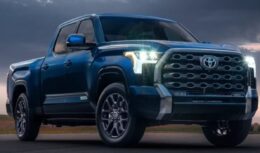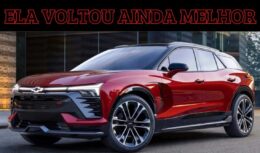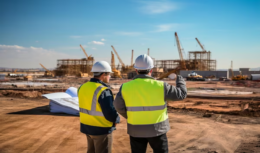
In a move contrary to that of Ford, the multinational vehicle manufacturer Volkswagen is going to invest R$ 7 billion in Latin America.
Despite the ongoing challenges of the coronavirus pandemic, the global shortage of semiconductors and the departure of Ford from Brazil, Volkswagen, the world's largest vehicle manufacturer, expects to report a positive result in 2021 and announced last Friday that it will invest 7 billion reais (approximately 1 billion euros) over the next five years in Latin America. Of the disclosed amount, Brazil should receive most of it.
Read also
- Multinational vehicle manufacturer Mitsubishi, offers discounts of up to 60%, on 16000 original parts, for owners of vintage cars Mitsubishi Eclipse, L200, TR4, Galant, Space Wagon, 3000GT and more!
- New portable battery that looks like a suitcase, promises to save the lives of electric car lovers and bring an extra charge of 32 km when they find themselves in trouble
- The largest wind turbine manufacturer in the world wants to install an offshore wind turbine factory in Ceará and many jobs will be generated in the state
- Production volume on the lines of Volkswagen, Toyota, Nissan, Honda, Fiat and General Motors plummets and is reflected in the operation of the supplier factory in Taubaté, which initiates layoffs at the unit
The massive investment will go towards launching a new family of cars, as well as accelerating the development of digital business models and, especially, expanding research into biofuels.
The German automaker will radically renew its model portfolio with 20 new vehicles
The German company launched a product offensive in 2017 to radically renew its model portfolio with 20 new vehicles from the new family of compact cars adapted to the needs of the South American market that will debut over four years, most of them manufactured in the factories of Volkswagen in Brazil. The first model is the Polo Track, which will be produced at the factory in Taubaté (Brazil) and is based on the MQB platform.
“The high level of future investments in our region demonstrates the great importance of the Latin American market for Volkswagen. This is based on three fundamental success factors: the excellent productivity of our factories achieved through consensus with the unions, the excellent performance of the entire team and our strong focus on the desires of Latin American customers”, highlighted the president and CEO of Volkswagen Latin America, Pablo di Si.
Volkswagen focuses on digitization and decarbonization
While expanding its product portfolio, Volkswagen is also accelerating the pace of its transformation to become a provider of “software-driven sustainable mobility” with additional investments in Latin America.
The group's objective is to further strengthen its competitive situation, focus on sustained profitability and give impetus to digitization and decarbonization in South America. This includes a research center on biofuels as a cutting-edge technology for this market, to complement Volkswagen's global electrification offensive.
“Latin America is an important market for the future of Volkswagen. In the last two years, we achieved a very good position in the region through a very consistent restructuring program. We are now driving the implementation of our ACCELERATE strategy with a major investment program, strengthening our competitive position in the region and thus preparing for sustained profitability,” said Ralf Brandstätter, CEO of Volkswagen.
In this regard, Volkswagen is making further investments in the existing Biofuels Research and Development Center located in Latin America. Particularly in regions where travel involves long distances, where charging infrastructure is not widespread and where levels of green energy supply are low, carbon dioxide positive biofuels (CO2) can “build a bridge to the electric age”.











There is already a language translation app…
Developed countries now need a helping hand…
I've never seen a website publish so much zucchini...
It must be sold to the Australians, nation…
Much better than playing a lot…
Very interesting, but there is so much invasive propaganda…
I would love to, but being released here the vlr would be…
I doubt it will make 45/lts